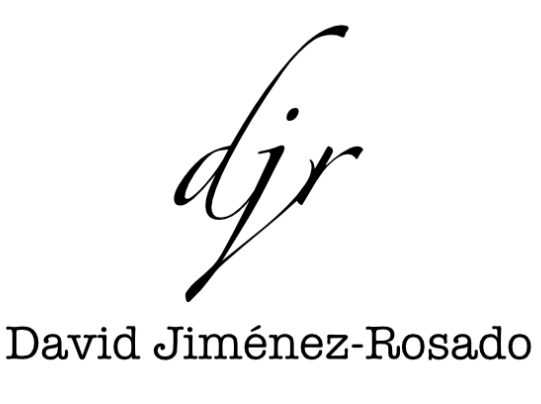
Maria, a principal at a Title I elementary school, stepped into her role with a clear mission: to foster a welcoming environment for families and staff from diverse cultural, linguistic, and socioeconomic backgrounds. Her school, composed of predominantly Hispanic families and students, had experienced years of disengagement due to leadership practices that did not prioritize inclusion. Maria faced the challenge of rebuilding trust and cultivating a community where everyone felt valued and supported. Her journey highlights the essential skills and strategic approaches necessary to lead effectively in diverse environments.
Leading diverse communities requires a nuanced understanding of cultural dynamics, emotional intelligence, and a steadfast commitment to equity and inclusion. Recent studies demonstrate that leaders must adopt evidence-based strategies to bridge differences and foster collaboration. This post explores the critical skills and practices essential for successfully guiding diverse communities.
Cultural Competence

Cultural competence lies at the heart of inclusive leadership. Leaders must actively recognize and integrate the cultural identities and experiences of their communities into decision-making processes. Research by Edström et al. (2024) emphasizes the importance of the “Participation Model,” which highlights aspects such as belonging, accessibility, and interaction as necessary components of inclusion. These dimensions align with culturally responsive practices that celebrate and respect diversity at all levels.
Similarly, Marbury’s (2024) findings underline that training programs, while valuable, must extend beyond superficial modules. Teachers’ lived experiences often fill gaps left by insufficient formal training, suggesting the need for immersive professional development initiatives that emphasize deep cultural understanding and empathy. Leaders can leverage these insights to design more impactful training programs that address systemic inequities and foster long-term inclusion.
Emotional Intelligence

Emotional intelligence (EI) is increasingly recognized as a vital predictor of leadership success, particularly in diverse settings. EI encompasses self-awareness, emotional regulation, empathy, and interpersonal skills, all of which are critical for navigating the complexities of multicultural communities. Drigas et al. (2023) highlight the transformative potential of EI in education, noting its role in enhancing relationships, reducing conflict, and improving academic and behavioral outcomes.
Quílez-Robres et al. (2023) demonstrate that EI is strongly correlated with academic performance and well-being, particularly when leaders integrate these skills into their interactions with students and staff. Leaders with high EI can mediate tensions, foster trust, and build resilient communities, making it an indispensable skill for managing diversity effectively.
Inclusive Communication

Effective communication in diverse environments goes beyond clarity; it requires cultural adaptability and sensitivity. Qobilovna (2023) underscores the role of communication training for educators, highlighting how improved communicative competence can enhance classroom dynamics and community engagement. Interactive workshops and reflective practices can equip leaders with the tools needed to navigate linguistic and cultural barriers, ensuring all stakeholders feel heard and valued.
Inclusive communication is also a cornerstone of restorative practices, as highlighted by Darling-Hammond (2023). Leaders who prioritize transparent and participatory communication foster stronger bonds within their communities, reducing misunderstandings and creating spaces for collaborative problem-solving.
Conflict Resolution

Conflict is inevitable in diverse settings, but well-managed disputes can serve as opportunities for growth and understanding. Research by Kilag et al. (2024) identifies effective conflict management as a critical skill for leaders, particularly in schools where diverse perspectives often intersect. Themes emerging from this research suggest that leaders must approach conflict with a mindset of cooperation, viewing disagreements as a chance to strengthen relationships rather than as obstacles.
Darling-Hammond (2023) emphasizes the role of restorative practices in conflict resolution. By addressing the root causes of disputes and fostering dialogue, restorative approaches not only resolve conflicts but also build lasting trust within communities. Leaders who embrace these practices can transform their organizations into more harmonious and inclusive environments.
Adaptability and Flexibility

The dynamic nature of diverse communities requires leaders to remain adaptable and responsive to changing needs. Edström et al. (2024) note that adaptability is crucial for fostering inclusion, particularly when addressing systemic barriers or unforeseen challenges. Leaders must remain open to revising their strategies and exploring innovative solutions to meet the unique demands of their communities.
Vision and Strategic Thinking

Effective leaders articulate a vision that celebrates diversity as a strength and unites community members around shared goals. Strategic thinking enables leaders to implement initiatives that reflect the needs and aspirations of their communities. Darling-Hammond (2023) illustrates this through restorative practices, which have been shown to improve school climates, reduce disciplinary disparities, and enhance academic outcomes.
Commitment to Equity and Inclusion

Equity and inclusion are foundational to effective leadership. Kilag et al. (2024) stress the importance of addressing systemic inequities through targeted interventions, while Marbury (2024) highlights the need for sustained investment in culturally responsive practices. Leaders must champion policies and practices that ensure all members of their communities have access to opportunities and resources, fostering a sense of belonging and trust.
Lifelong Learning and Self-Reflection

Leading diverse communities is a journey of continuous learning. Leaders must actively seek opportunities to deepen their understanding of cultural dynamics and reflect on their practices to identify areas for growth. Qobilovna (2023) emphasizes the importance of reflective practices in professional development, noting that such approaches equip leaders with the insights needed to navigate the complexities of diversity effectively.
Conclusion
Maria’s journey illustrates the transformative power of inclusive leadership. By cultivating cultural competence, emotional intelligence, inclusive communication, and other key skills, leaders can create environments where diversity is celebrated, equity is prioritized, and collaboration thrives. As the world grows more interconnected, these competencies will remain essential for guiding diverse communities toward shared success.
References
Darling-Hammond, S. (2023). Fostering belonging, transforming schools: The impact of restorative practices. Learning Policy Institute.
Drigas, A., Papanastasiou, G., & Skianis, C. (2023). The school of the future: The role of digital technologies, metacognition and emotional intelligence. International Journal of Emerging Technologies in Learning (Online), 18(9), 65.
Edström, K., Gardelli, V., & Backman, Y. (2024). Inclusion as participation: mapping the participation model with four different levels of inclusive education. International Journal of Inclusive Education, 28(12), 2940-2957.
Kilag, O. K., Diano Jr, F., Bulilan, R., Allego, L., & Cañizares, M. C. (2024). Leadership strategies for building inclusive school communities: The challenges of managing diversity in schools. International Multidisciplinary Journal of Research for Innovation, Sustainability, and Excellence (IMJRISE), 1(1), 92-100.
Marbury, K. R. (2024). Training and preparedness of teachers to be evaluated on culturally responsive practices in one public school division in Virginia.
Qobilovna, A. M. (2023). Program for the development of primary school teachers’ communicative competence factors. International Journal of Pedagogics, 3(12), 169-175.
Quílez-Robres, A., Usán, P., Lozano-Blasco, R., & Salavera, C. (2023). Emotional intelligence and academic performance: A systematic review and meta-analysis. Thinking Skills and Creativity, 49, 101355.
